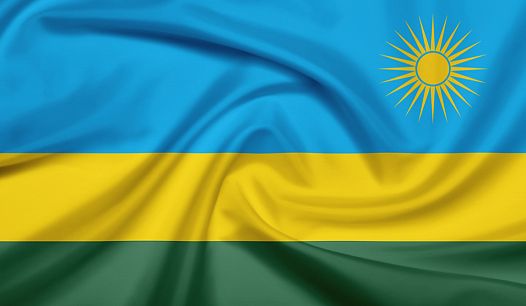By the time Lieutenant Ariane Mwiza completed her secondary education at the Kigali-based Lycée Notre Dame de Citeaux, she already knew that somehow, her career path would involve the military.
At just 25, Mwiza is not only part of the Rwanda Defense Force (RDF), she is also currently serving as a helicopter pilot on a United Nations Peacekeeping mission stationed in Juba, South Sudan.
She is part of the UN Mission in South Sudan, UNMIS.
Mwiza, who joined RDF in 2013, is one of the slightly over 6,000 Rwandans on peacekeeping mission hot spots such as South Sudan, the Darfur region of Sudan and the Central African Republic (CAR).
In an interview with The New Times, on the International Day of United Nations Peacekeepers, Mwiza said that choosing the military was one of the ways she felt she could best serve her country.
The International Day of United Nations Peacekeepers which is celebrated on 29 May, offers a chance to pay tribute to the uniformed and civilian personnel’s invaluable contribution to global peace.
It is also an opportunity to honour more than 3,900 peacekeepers who have lost their lives serving under the UN flag since 1948, including 102 during last year.
As of May 2018, 53 Rwandans had lost their lives while serving with UN peacekeeping operations.
Mwiza says that being sent on her first UN Mission in 2017 was an opportunity to work alongside many other peacekeepers while also getting exposure to many other cultures and ways of life.
She pointed out that besides the extreme weather as compared to the one in Rwanda, the mission has been a learning curve.
“This aviation career still has very few women and that can be challenging because some people tend to be sceptical about being flown by a female pilot, but with time, this is changing. In fact, some people are even happier to find out that it’s a female pilot that is going to fly them,” she said.
She reminds young girls that the military is the most diverse and favourable working environment for all kinds of careers.
“You can join the military and serve on such a mission (and in the country) as a doctor, engineer or any other profession. Being in the military is the best choice I have ever made,” she said.
Motherhood and peacekeeping
While Mwiza is single and has no children, 39-year-old Major Stella Uwineza had to leave her husband of 11 years and three children to serve on UN Mission in South Sudan.
Uwineza, who joined the RDF in 2002, and was first deployed on a peacekeeping mission in 2011 in Sudan under the United Nations Hybrid Mission in Darfur (UNAMID).
She was later redeployed in 2019 to the mission in South Sudan where she is still serving.
Uwineza says that being sent on UN peacekeeping missions has greatly improved her professional experience and given her an opportunity to work in multicultural and diverse environments.
She says that the challenges she has are mostly around having to stay away from her family for long periods of time but a great support system has helped her to pursue her dreams and parent at the same time.

She says that her 18-year experience as a military officer has left her with experiences that are both memorable and learning opportunities.
“I had so many opportunities that helped me appreciate life and understand what is important in my everyday choices and decisions,” says the senior officer.
She reminded young women that being in the military and serving the nation home and away requires determination and self-discipline whether you are a man or woman.
“To the young women today, you are lucky to grow up in a country that provides equal opportunities for everyone. Don’t limit yourselves based on what people say. You are stronger than you think and you can achieve anything as long as you are willing to give it your best,” she said.
Growing up as a refugee in a neighboring country, 36-year-old, Major Dinah Mutesi knew that she wanted to join the military when she was still young.
In 2003, she joined and in 2010, she was recruited in the UN peacekeeping mission.
Mutesi, who is married and a mother of two says that the challenges of balancing parenthood and marriage with her military career has not been many since her spouse is also a serving military officer.
“I discuss with my husband on how best we can continue moving but technology has been instrumental too since we talk every day,” she says.
She reminded young girls that they are capable and can achieve anything with self-discipline.
In all fields of peacekeeping, women peacekeepers have proven that they can perform the same roles, to the same standards and under the same difficult conditions, as their male counterparts. In 1993, women made up 1 per cent of deployed uniformed personnel.
As of 2019, out of approximately 95,000 peacekeepers globally, women constituted 4.7 per cent of military contingents and 10.8 per cent of formed police units in UN peacekeeping missions.
Rwanda in peacekeeping
Currently, Rwanda is the 3rd largest contributor to the peacekeeping mission in the world, with 6,316 peacekeepers serving as military contingents, police and staff officers.
Rwanda is third to Ethiopia and Bangladesh, respectively.
The first peacekeepers for Rwanda were deployed 15 years ago to what was the then AU Mission in Darfur, Sudan which later became a hybrid force, after the UN got involved.

